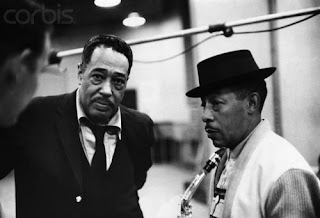 Instantly recognizable in trademark Russian chic -
Cossack hat and brightly coloured peasant garb or fur greatcoat - Ivan Rebroff,
was a European singing sensation. During the 1960s and 70s, he projected a
television-friendly image and a sentimental picture of Mother Russia at odds
with cold war rhetoric. More importantly, his voice gained him admirers
worldwide. His repertoire comprised folk songs and carols, opera and operetta,
hymns and songs from musicals, delivered variously in Russian, German, French,
English and Afrikaans.
Instantly recognizable in trademark Russian chic -
Cossack hat and brightly coloured peasant garb or fur greatcoat - Ivan Rebroff,
was a European singing sensation. During the 1960s and 70s, he projected a
television-friendly image and a sentimental picture of Mother Russia at odds
with cold war rhetoric. More importantly, his voice gained him admirers
worldwide. His repertoire comprised folk songs and carols, opera and operetta,
hymns and songs from musicals, delivered variously in Russian, German, French,
English and Afrikaans.
Rebroff, the epitome of a Russian singer for many, was,
in fact, born Hans-Rolf Rippert in Berlin's Spandau district. He always played
his cards close to his chest about his origins. His engineer father apparently
came from Hessen, while his mother, he said, was Russian. He grew up in Belzig
in Brandenburg and Halle in Saxony-Anhalt. At first he tried for a career in
opera but despite his range failed to secure a future, instead he fell back
upon his Russian heritage and soon found himself as soloist for Cossack Choirs
(Don Cossack Choir, Black Sea and Ural Mountains Cossack Choir.

He progressed from singing in choirs to studying singing, piano and violin in Hamburg between 1951 and 1959 on a Fulbright scholarship. His professor of singing and voice, Adolf Detel, guided him towards eastern European song. After graduating, Rebroff showed his versatility, donning many musical hats including major operatic roles and performing the work of Hugo Wolf.
In 1968 he made his French breakthrough at the Théâtre
Marigny in the leading role of Tevye in Un Violon sur le Toit (the French
version of Fiddler on the Roof) and bringing If I Were a Rich Man in its
original version to the French public's notice. His unbroken 1476 performances
and French
renditions of the popular musical won him international acclaim. France's love affair with Rebroff had begun and Rebroff joined Zero Mostel, Chaim Topol, Shmuel Rodensky, Alfie Bass and Lex Goudsmit in the international pantheon of Tevye interpreters.
renditions of the popular musical won him international acclaim. France's love affair with Rebroff had begun and Rebroff joined Zero Mostel, Chaim Topol, Shmuel Rodensky, Alfie Bass and Lex Goudsmit in the international pantheon of Tevye interpreters.
Rebroff employed his extraordinary vocal range -
described in the Guinness Books of Records as extending "easily over four
octaves from a low F to a high F, one and a quarter octaves above C" - on
albums with titles such as Kosaken Müssen Reiten (Cossacks Must Ride, 1970).
There are two, not necessarily contradictory accounts of
why he adopted the stage name "Ivan Rebroff". In Russian that surname
means "rib" and consequently carried an echo of Rippert since Rippe
means "rib" in German. Rebroff was also supposedly the name of a
famous singer with Moscow's Bolshoi theatre.
(Reinforcing this russification,
"Ivan" is also German slang for Russian, much in the vein of
"Tommy".)
 Throughout his
career Ivan had an impressive recording portfolio with an amazing 49 golden
albums worldwide in South Africa, Australia, New Zealand, the Pacific Islands,
USA, Canada, Iceland and almost every European country. He sang opera, light
classics and folk songs in many languages. Laterally he based himself on the
Greek Island of Sporade but worked tirelessly with a punishing average of
150-200 concerts per year. When he was in Australia in 2004 his schedule
included 12 shows in 14 days.
Throughout his
career Ivan had an impressive recording portfolio with an amazing 49 golden
albums worldwide in South Africa, Australia, New Zealand, the Pacific Islands,
USA, Canada, Iceland and almost every European country. He sang opera, light
classics and folk songs in many languages. Laterally he based himself on the
Greek Island of Sporade but worked tirelessly with a punishing average of
150-200 concerts per year. When he was in Australia in 2004 his schedule
included 12 shows in 14 days.
Until almost the end of his life, he maintained a
rigorous touring schedule, and his last concert was in Vienna in December 2007.
Rebroff died February 28, 2008 in Frankfurt am Main, Hesse, Germany of heart
problems.
Rebroff never married. After his death, Horst Rippert
emerged to lay claim to part of his estate. The German press described him as
his "secret brother".
Compiled and edited mainly from articles by Ken Hunt for
The Guardian & Toeslayer blogspot.com)




















































